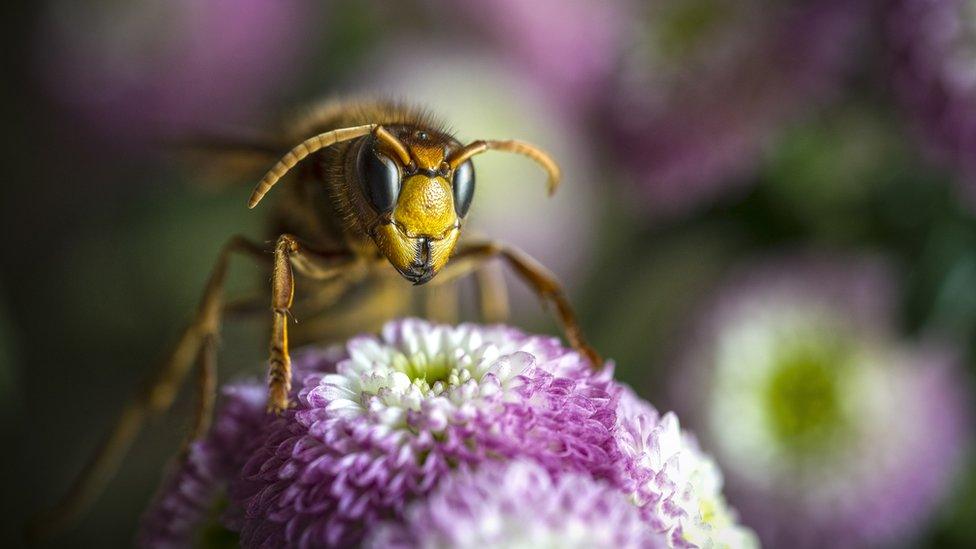Plan to capture 'voracious' Asian hornets in Guernsey
- Published
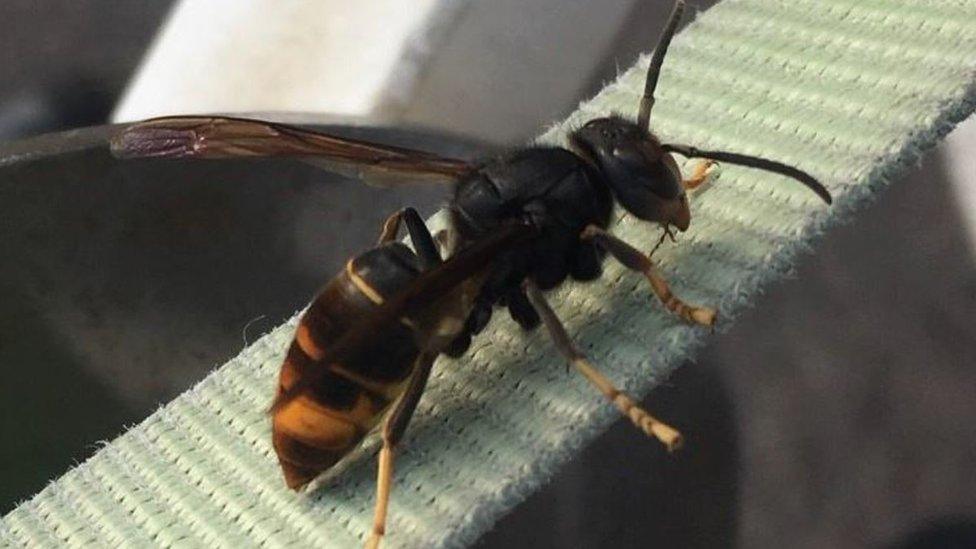
Asian hornet queens have been arriving in the Channel Islands from France since 2017
A campaign to capture queen Asian hornets before they form nests has been launched by the States of Guernsey.
The invasive species arrives in the Channel Islands from France in spring, posing a threat to local biodiversity.
Francis Russell, who coordinates the project, described the hornets as "voracious predators".
"A single insect is a lot easier to deal with than a nest of 10 or 12 thousand angry worker hornets, which could be 30ft up in a tree," he said.
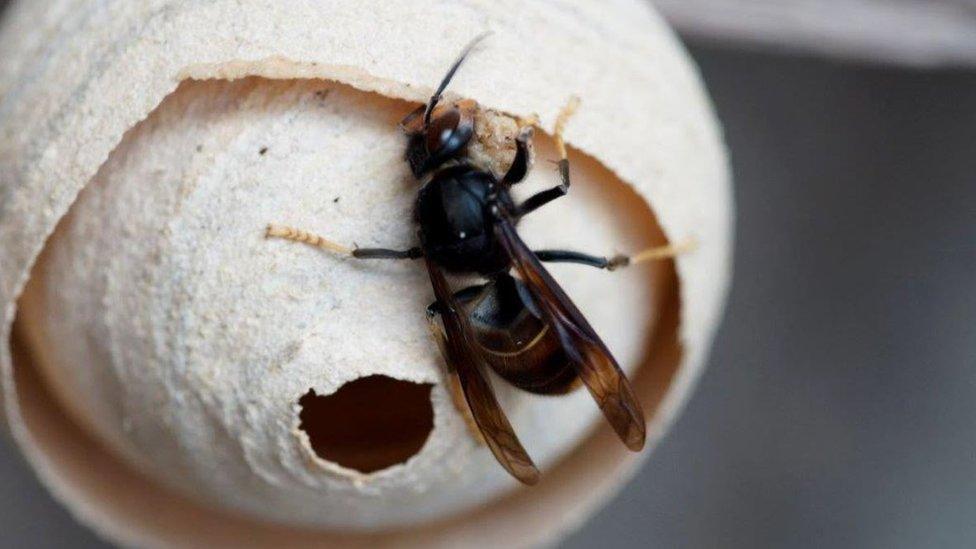
Queens set up a smaller nest and forage for food for a few weeks after arriving in the islands
Mr Russell said the species was a "significant threat" to local insect populations and biodiversity in the Bailiwick of Guernsey.
One nest full of hornets is capable of consuming around 11kg (24lb) of pollinating insects like bees in a season, he said.
"These hornets are voracious predators, they're not fussy and they feed on any insect they can get hold of," he said.
The easiest way to protect the islands from the hornets was to catch them in their "spring queening" phase, he said.
This is when queens emerge from hibernation and set up a smaller primary nest to search for food for a few weeks, before establishing a larger secondary nest, Mr Russell explained.
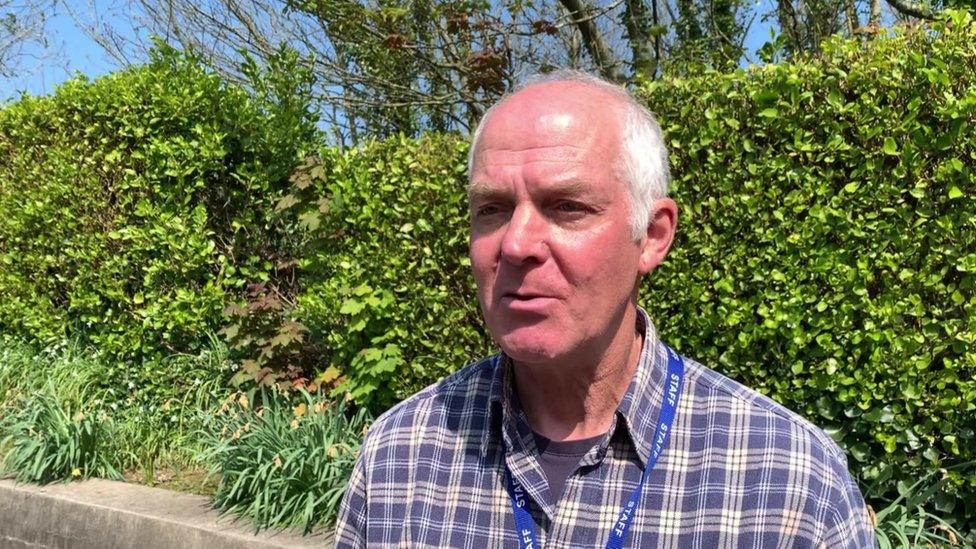
Francis Russell explained one nest can eat around 11kg of other insects in one season
The project uses special traps to capture the hornet queens without catching smaller insects.
A total of 270 traps were set up in gardens, hedges and fields around the island in March.
Alderney, Sark and Herm have similar programmes to prevent the insects from taking hold.
The first sighting of an Asian hornet in Guernsey was in 2017 and the following year saw eight nests found and destroyed.
A system to capture queens began in 2019, with just two nests found and destroyed. No nests were capture queens began in 2019.

Follow BBC Guernsey on Twitter, external and Facebook, external. Send your story ideas to channel.islands@bbc.co.uk, external.
Related topics
- Published19 December 2020
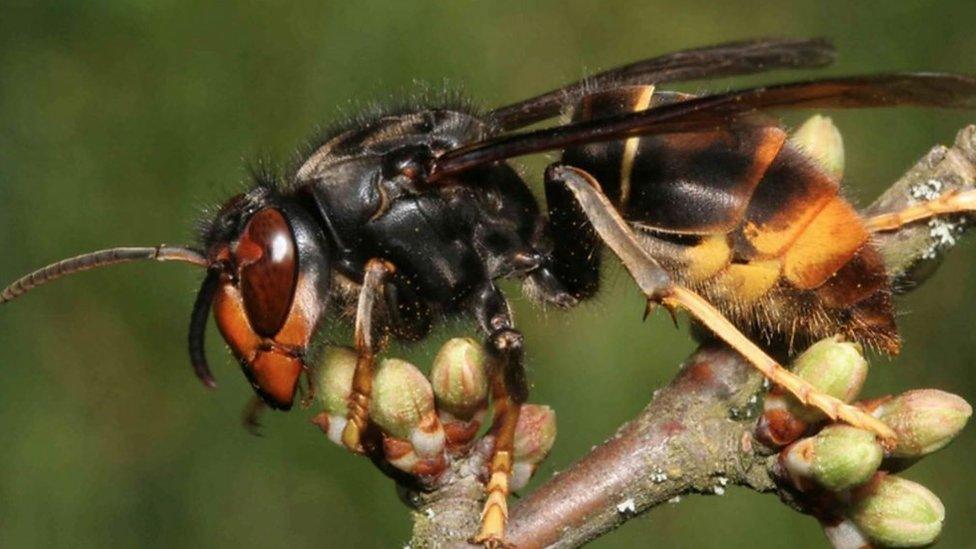
- Published12 December 2018
